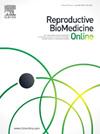Private versus funded infertility care: not a challenge but a call for cooperation
IF 3.7
2区 医学
Q1 OBSTETRICS & GYNECOLOGY
引用次数: 0
Abstract
Private medical care has significantly contributed to the advancement of various medical fields. The birth of private IVF groups in the 1990s led to improvements in stimulation protocols, embryo culture, intracytoplasmic sperm injection, vitrification and preimplantation genetic testing. However, infertility is often misunderstood as a disease, leading to low birth rates and a lack of awareness among the general population. The growth of private fertility units and the interest of private equity companies in this sector is a new trend, but some treatment options should not be seen as negative contributions to medical care. Both private and public sectors have the responsibility and obligation to look for technological improvements, and a collaborative approach is necessary to reduce stress for couples and improve outcomes.
私立与资助的不孕不育治疗:不是挑战,而是合作的呼唤。
私立医疗机构为各个医疗领域的发展做出了巨大贡献。20 世纪 90 年代,私立试管婴儿团体的诞生使刺激方案、胚胎培养、卵胞浆内精子注射、玻璃化技术和植入前基因检测得到了改进。然而,不孕不育往往被误解为一种疾病,导致出生率低,普通民众缺乏这方面的认识。私营不孕不育机构的发展以及私募股权公司对这一领域的兴趣是一种新趋势,但不应将某些治疗方案视为对医疗保健的负面贡献。私营和公共部门都有责任和义务寻求技术改进,有必要采取合作的方式来减轻夫妇的压力并改善治疗效果。
本文章由计算机程序翻译,如有差异,请以英文原文为准。
求助全文
约1分钟内获得全文
求助全文
来源期刊

Reproductive biomedicine online
医学-妇产科学
CiteScore
7.20
自引率
7.50%
发文量
391
审稿时长
50 days
期刊介绍:
Reproductive BioMedicine Online covers the formation, growth and differentiation of the human embryo. It is intended to bring to public attention new research on biological and clinical research on human reproduction and the human embryo including relevant studies on animals. It is published by a group of scientists and clinicians working in these fields of study. Its audience comprises researchers, clinicians, practitioners, academics and patients.
Context:
The period of human embryonic growth covered is between the formation of the primordial germ cells in the fetus until mid-pregnancy. High quality research on lower animals is included if it helps to clarify the human situation. Studies progressing to birth and later are published if they have a direct bearing on events in the earlier stages of pregnancy.
 求助内容:
求助内容: 应助结果提醒方式:
应助结果提醒方式:


